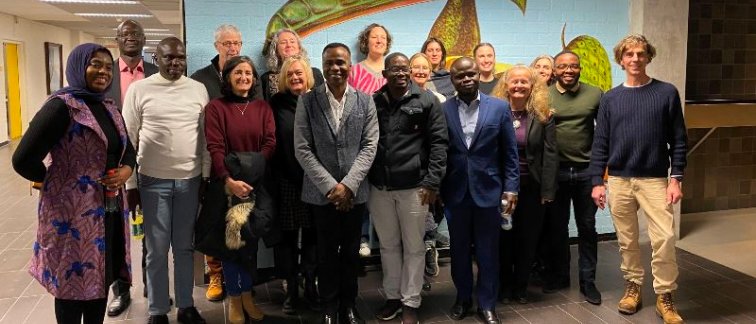In response, a consortium comprising the Amsterdam University Medical Centers, University of Amsterdam, the University of Ghana, the African Population and Health Research Center, Loughborough University, the French National Research Institute for Sustainable Development, and the Belgian Public Health Institute, Sciensano, have conceived the Generation-H Project.
Kick-off meeting
The Generation H project kick-off meeting brought together a diverse team of experts to devise a strategy for combatting unhealthy diets and sedentary lifestyles among adolescents in Ghana and Kenya. Participants who attended this meeting anticipated gaining insight into the project details, team dynamics, and individual roles, with a focus on developing strategies to tackle adolescent health challenges in Ghana and Kenya.
Expectations ranged from getting to know themselves and understanding the project’s scope to addressing key challenges and solutions. Challenges such as budget constraints, recruitment difficulties, and the participatory nature of the project were acknowledged, with solutions including effective communication, stakeholder engagement, and clear timelines.
Expectations for project management emphasized clear and timely communication, effective leadership, and equal partnership among consortium members. Overall, the kick-off meeting set the stage for a collaborative and impactful endeavor to improve adolescent health outcomes in the target regions.
About the Generation-H project
Funded by the European Union, Horizon Europe & UKRI, the Generation-H project will develop a multi-component intervention to reduce two pivotal modifiable risk factors: unhealthy diets, physical inactivity, and their underlying social determinants, among adolescents and youth aged 10-19 years in sub-Saharan Africa, in diverse socio-economic urban settings in Ghana (Greater Accra region) and Kenya (Nairobi). Ultimately, this can support healthy lifestyle and prevent NCDs in adulthood.
The Generation-H intervention strategy is multi-dimensional, encompassing educational programs, community engagement initiatives, policy advocacy, and collaborations with educational, faith-based, and healthcare institutions. Spanning January 2024 to December 2028, details of Generation H activities can be found on the project website – https://www.generationh.org/
Harnessing the collective expertise of consortium experts, and in strategic partnership with local governments, NGOs, faith- and community-based organizations, Generation-H seeks to mitigate the rising tide of NCDs within sub-Saharan Africa through designing, deploying, and evaluating strategies for implementation of evidence and theory-based diet and physical activity interventions mapped on to the WHO Best Buys. These interventions will be meticulously designed to resonate with the distinct cultural nuances and challenges prevalent in East and West Africa.
For further details about the Generation H project and opportunities for engagement, please visit our website: https://www.generationh.org/.
The Generation-H project is funded by the European Union, Horizon Europe & UKRI. However, views and opinions expressed in this press statement are those of the project implementation team only, and do not necessarily reflect those of the European Union. Neither the European Union nor the granting authority can be held responsible for them.
Source: generationh.org

